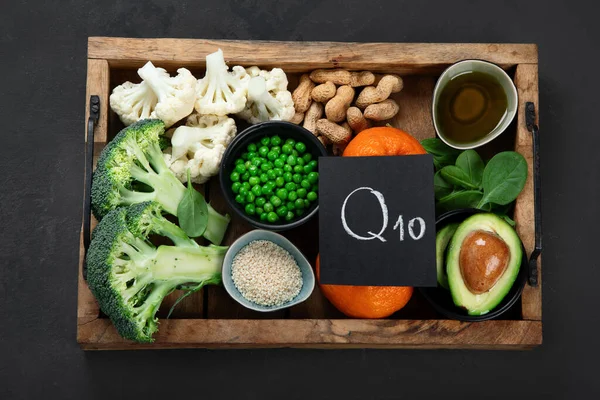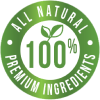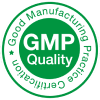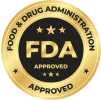In a world where well-being and longevity are central to many people's concerns, coenzyme Q10 is an essential nutrient. This natural compound, present in every cell of our body, plays a crucial role in energy production and protection against oxidative damage.
The basics of coenzyme Q10
Definition and origin of coenzyme Q10
Q10, also known as ubiquinone, is a powerful antioxidant produced naturally by the human body. It is mainly found in the mitochondria, the "energy powerhouses" of cells. The strong presence of this coenzyme helps convert fats and sugars into usable energy.
Role in cellular energy production
The main role of coenzyme Q10 is to facilitate the production of adenosine triphosphate (ATP), the fundamental unit of energy used by cells. It acts as an electron transporter in the mitochondrial respiratory chain, essential for ATP production. Without an adequate supply of Q10, our cells would have difficulty producing enough energy to function properly.
Health benefits of coenzyme Q10
Antioxidant properties
As an antioxidant, Q10 neutralizes free radicals, unstable molecules produced during normal cellular metabolism or by exposure to harmful external factors such as pollution. If left unchecked, these free radicals can cause cellular damage and accelerate the aging process. Adding Q10 to your diet can help you better resist oxidative stress.
Cardiovascular support
Research into the relationship between coenzyme Q10 and heart disease shows that this nutrient can have significant beneficial effects on vascular health. By helping to improve myocardial function and reducing oxidative stress, Q10 can support the cardiovascular system. Research has also suggested its usefulness in the treatment of chronic heart failure.
- Improvement of heart failure symptoms
- Lower blood pressure
- Reduced bad cholesterol
Support for athletic performance
Athletes can benefit from coenzyme Q10 supplementation thanks to its properties in promoting cellular energy production. Increased levels of this coenzyme could help reduce muscle fatigue and improve recovery after intense training sessions.
Sources of coenzyme Q10
Food sources
Q10 is found in a variety of foods, mainly those rich in fats and proteins. Here are a few examples:
- Red meat (beef, pork)
- Oily fish (mackerel, salmon, sardines)
- Nuts and seeds (peanuts, pistachios)
- Green vegetables (broccoli, spinach)
Coenzyme Q10 supplementation
For many, obtaining it through diet alone is not always sufficient, especially in the elderly whose ability to produce this coenzyme diminishes with age. Supplements are available in a variety of forms, including capsules, tablets and softgels. The latter are often preferred for their better absorption rates.
Coenzyme Q10 and aging
Anti-aging effects
Thanks to its powerful antioxidant properties, coenzyme Q10 plays a key role in combating the visible and internal signs of aging. By protecting cells from free radical damage, this coenzyme helps preserve skin elasticity, reduce wrinkles and maintain a youthful appearance.
Support for cognitive functions
Cognitive functions often decline with age. Q10 may help protect the brain against oxidative stress, as well as improving mitochondrial function in neurons, thus promoting better cognition and memory.
Therapeutic applications of coenzyme Q10
Migraine management
Studies show that coenzyme Q10 supplementation can benefit frequent migraine sufferers, probably by preventing mitochondrial dysfunction and reducing cerebral oxidative stress.
Skin care
Many skincare products contain coenzyme Q10 for its ability to encourage cell regeneration and repair sun-induced damage. Applied topically, it promotes firmness, smoothes fine lines and improves skin tone.
Factors influencing coenzyme Q10 levels
Aging and disability
Coenzyme Q10 levels tend to decline with age. Specific conditions such as certain chronic diseases (e.g. diabetes, cancer) can also accelerate this natural decline. This is why supplementation is sometimes recommended for at-risk populations.
Effects of certain drugs
Certain drugs, notably statins used to treat high cholesterol, can limit endogenous production of coenzyme Q10. This can lead to a reduction in body levels and require supplementation to compensate for these involuntary losses.
How to incorporate coenzyme Q10 into your daily routine
With meals
To optimize absorption of Q10, it is advisable to take it with meals containing fat. For example, a capsule taken during dinner with fatty fish or a salad with olive oil could maximize results.
Choosing the right supplement form
Softgels are often recommended for their enhanced bioavailability. They enable faster, more effective absorption than other forms. It is crucial to choose quality products to guarantee the purity and efficacy of the supplement.











